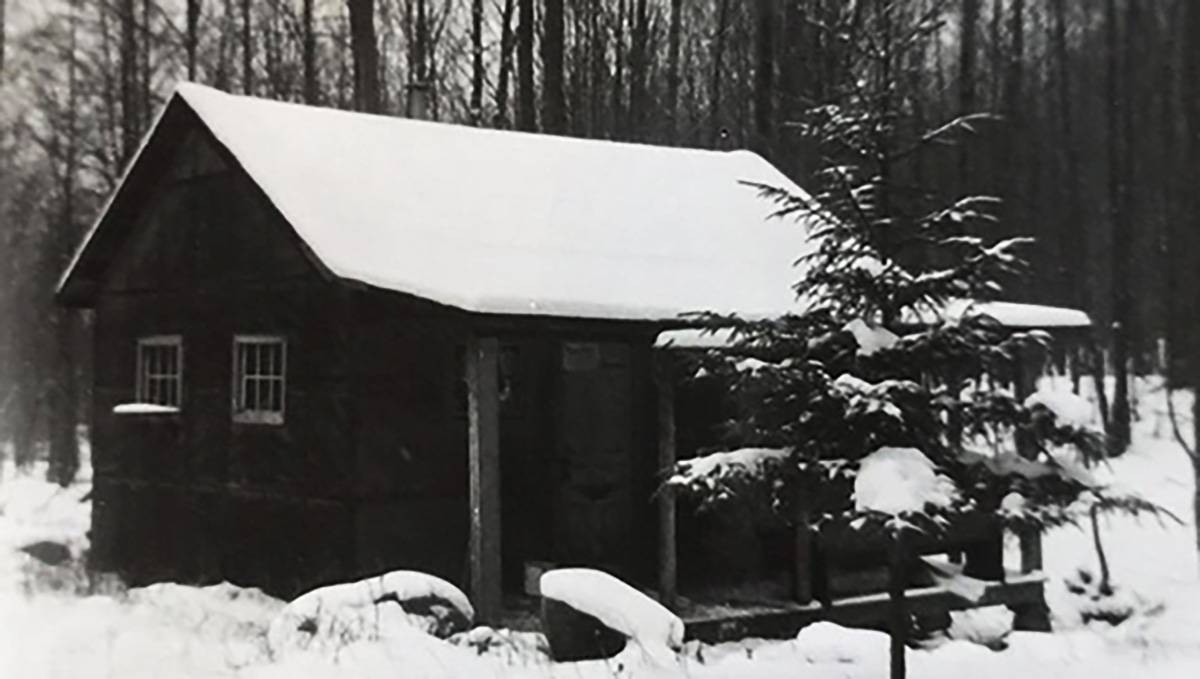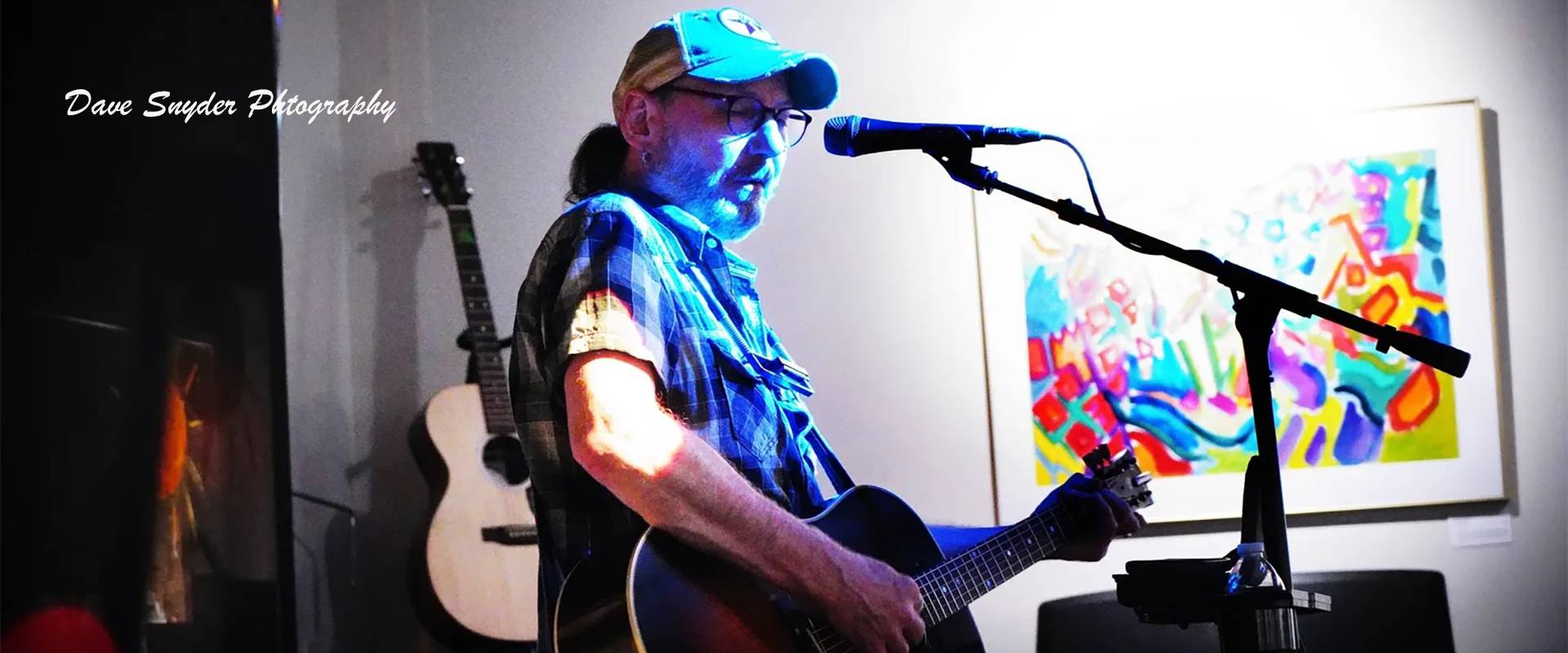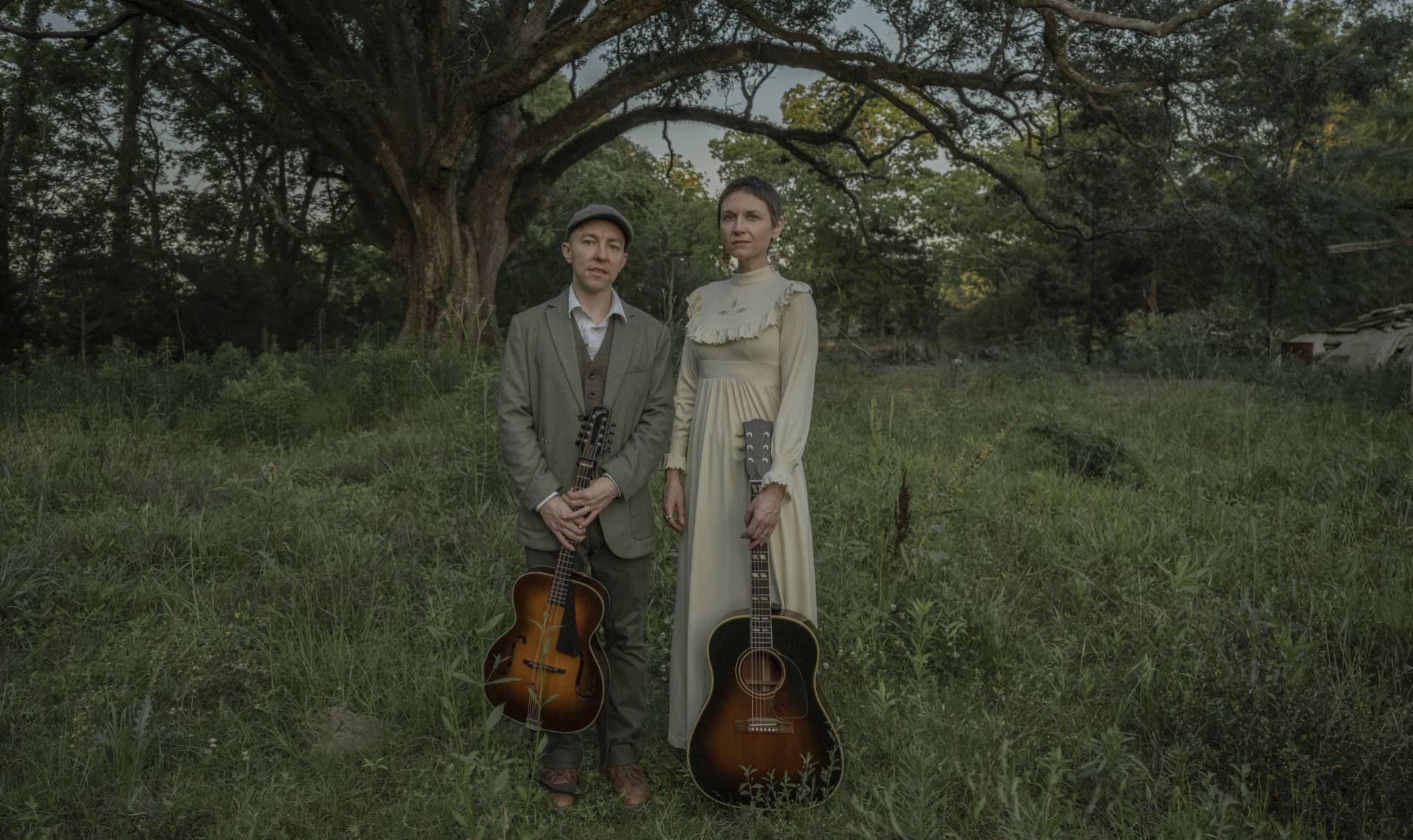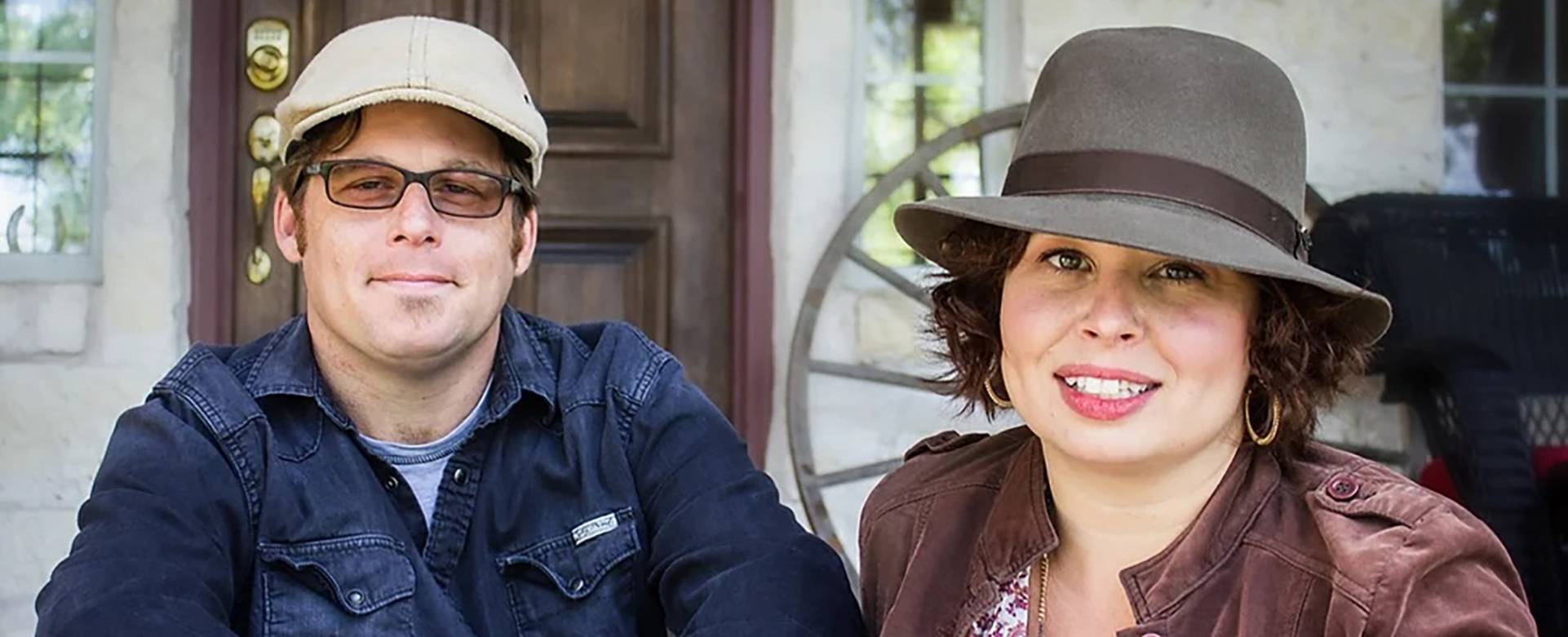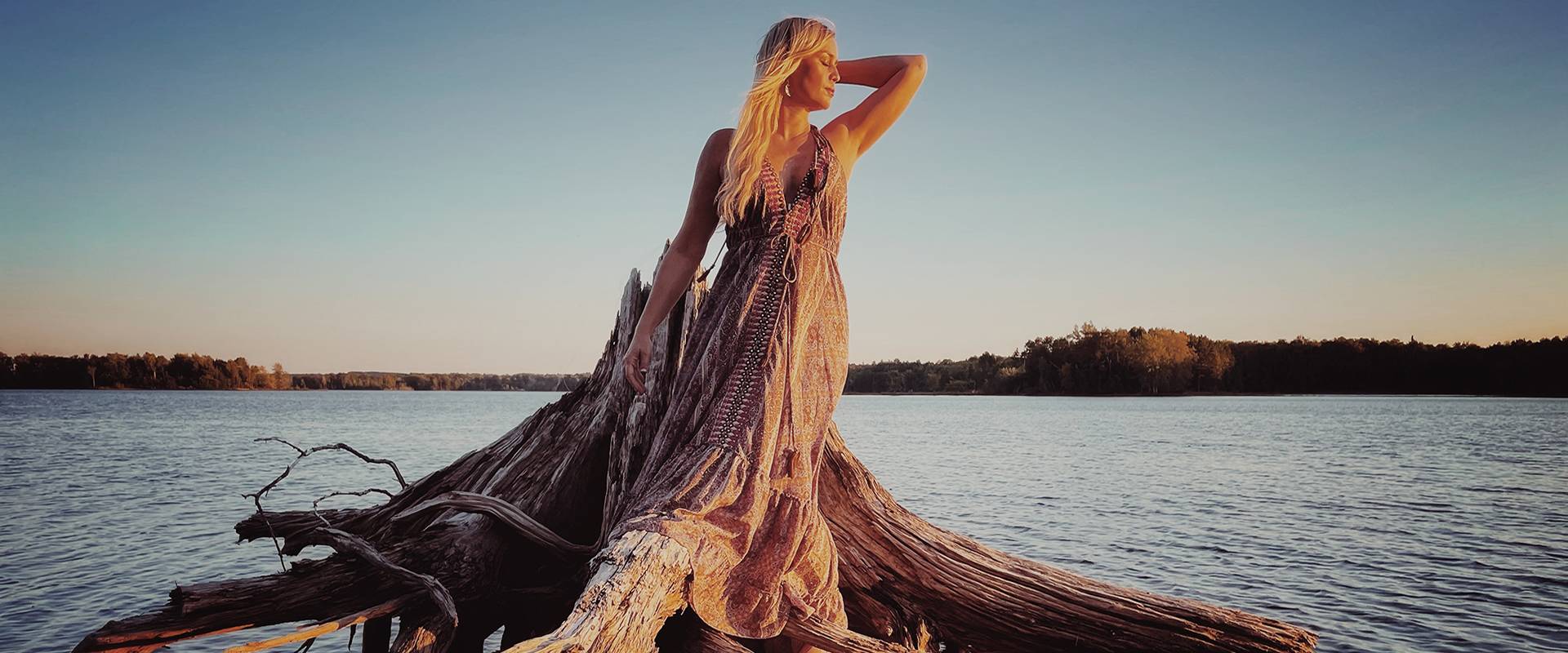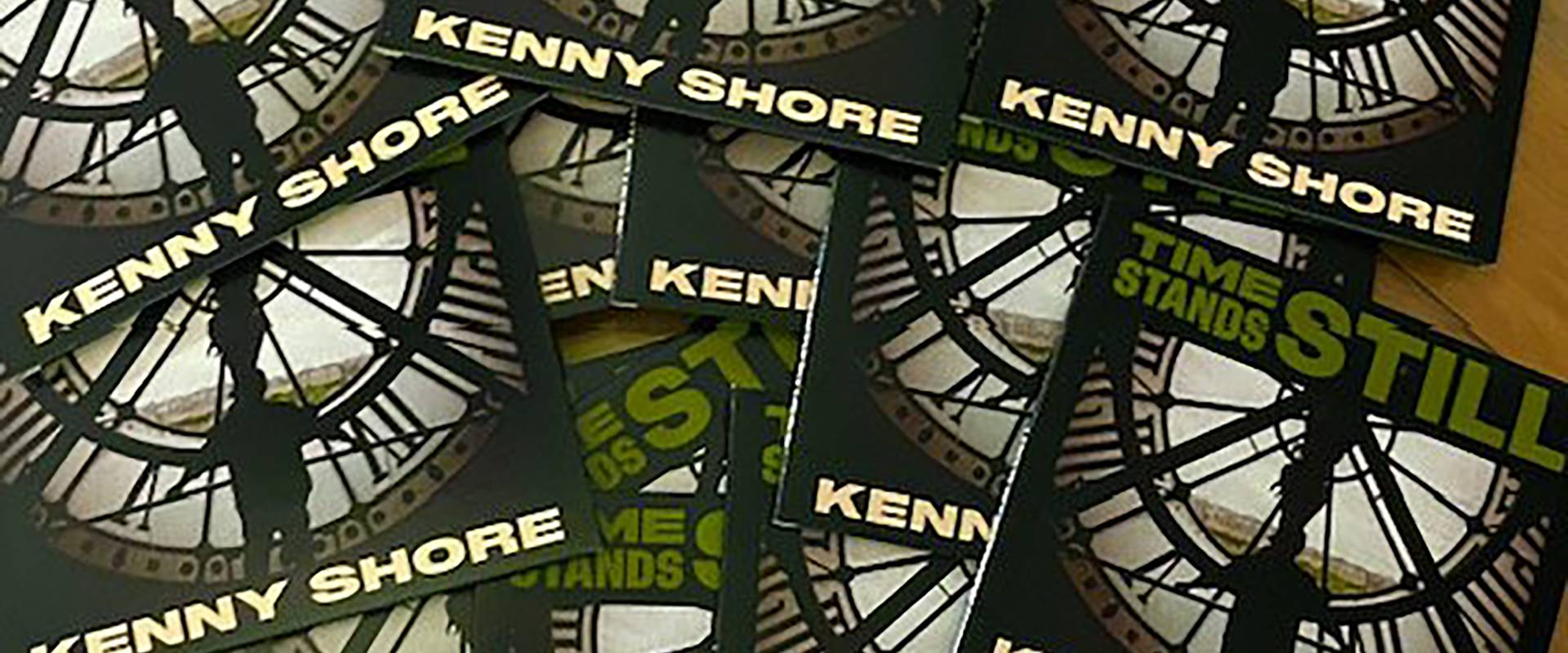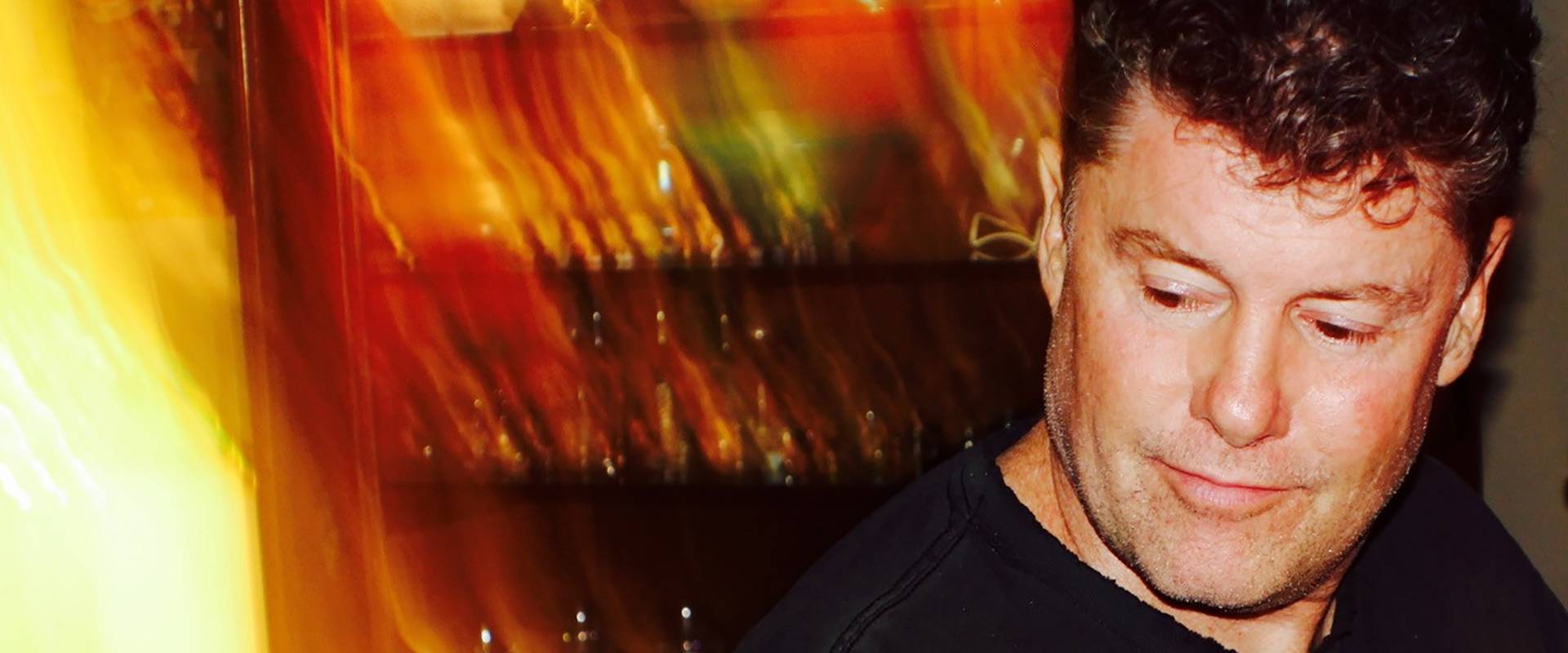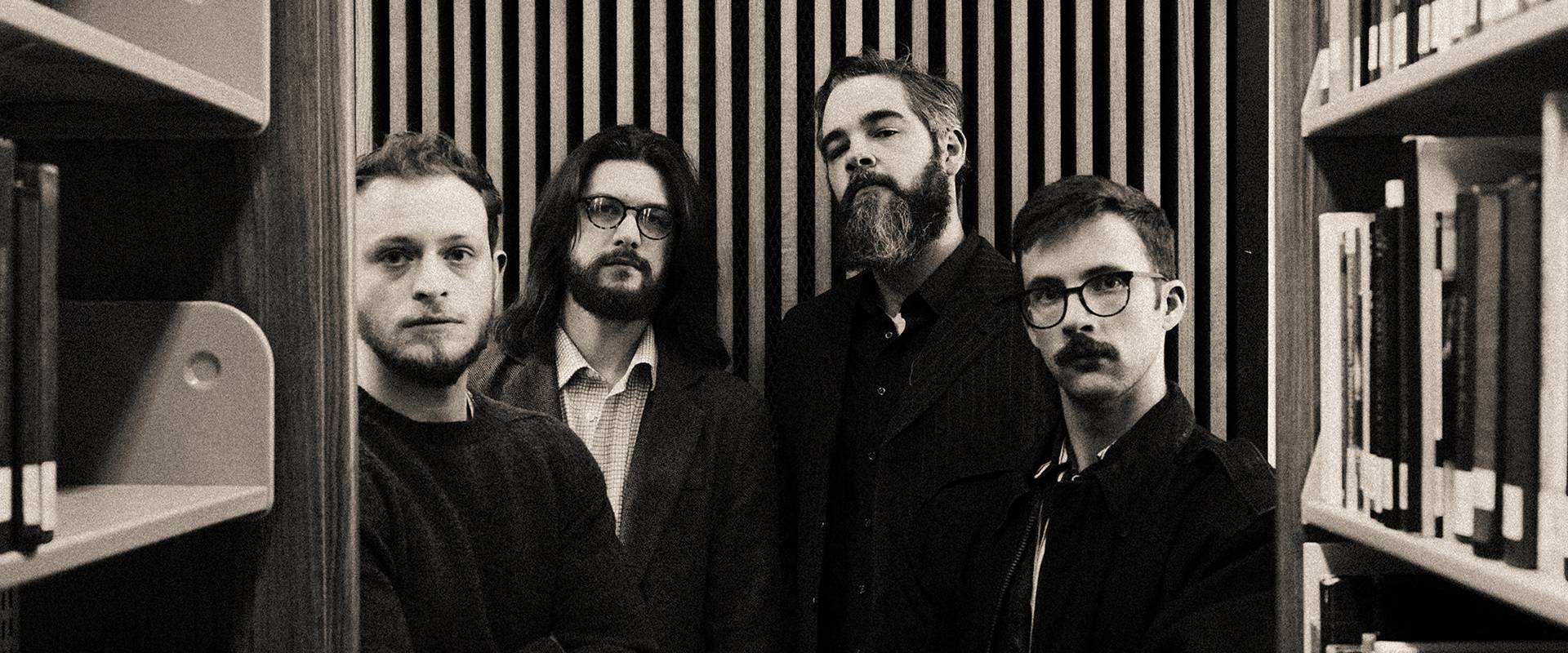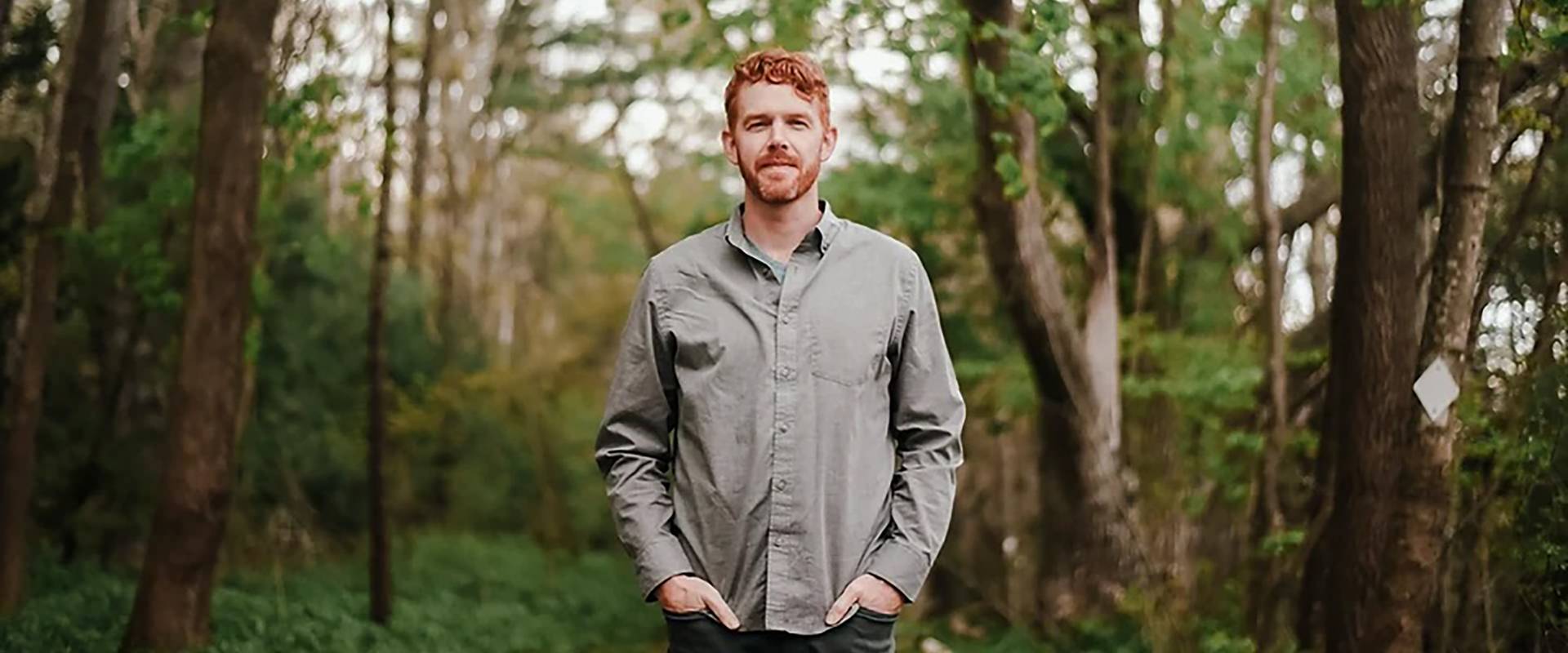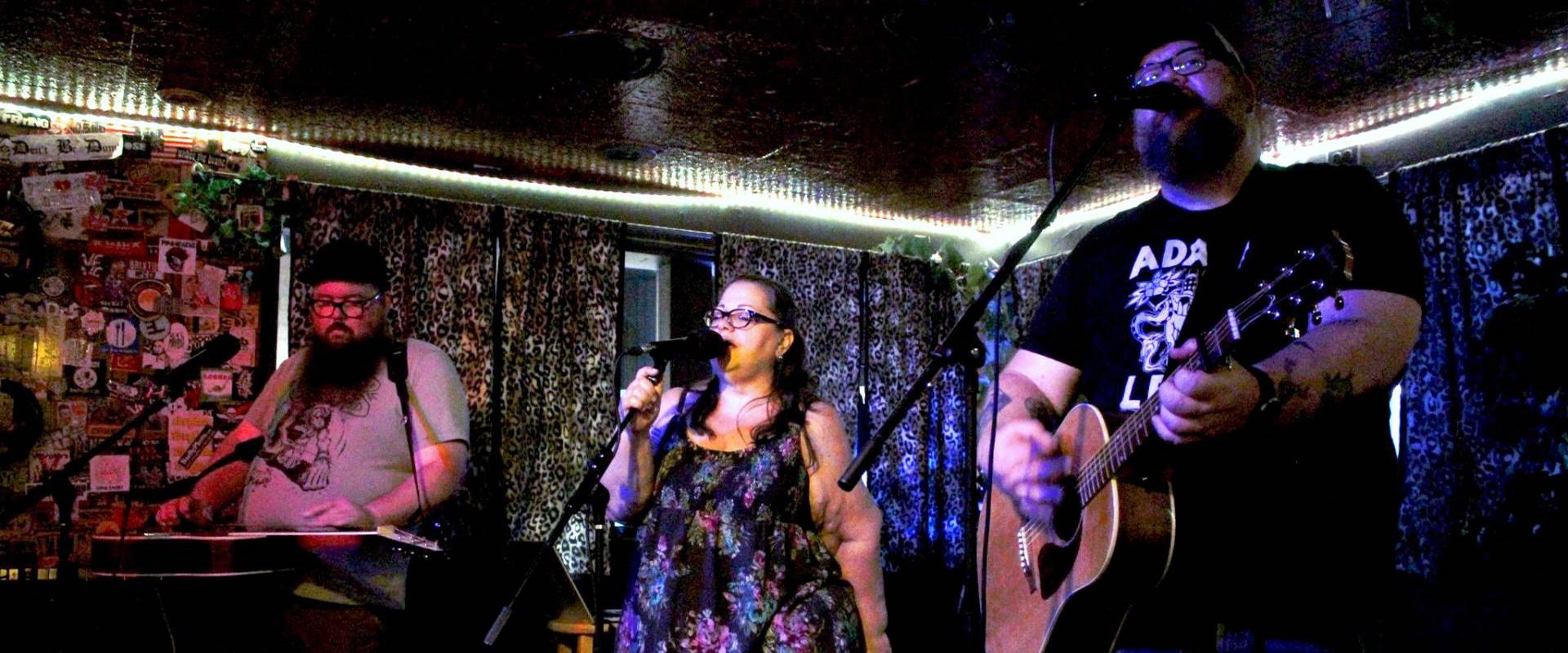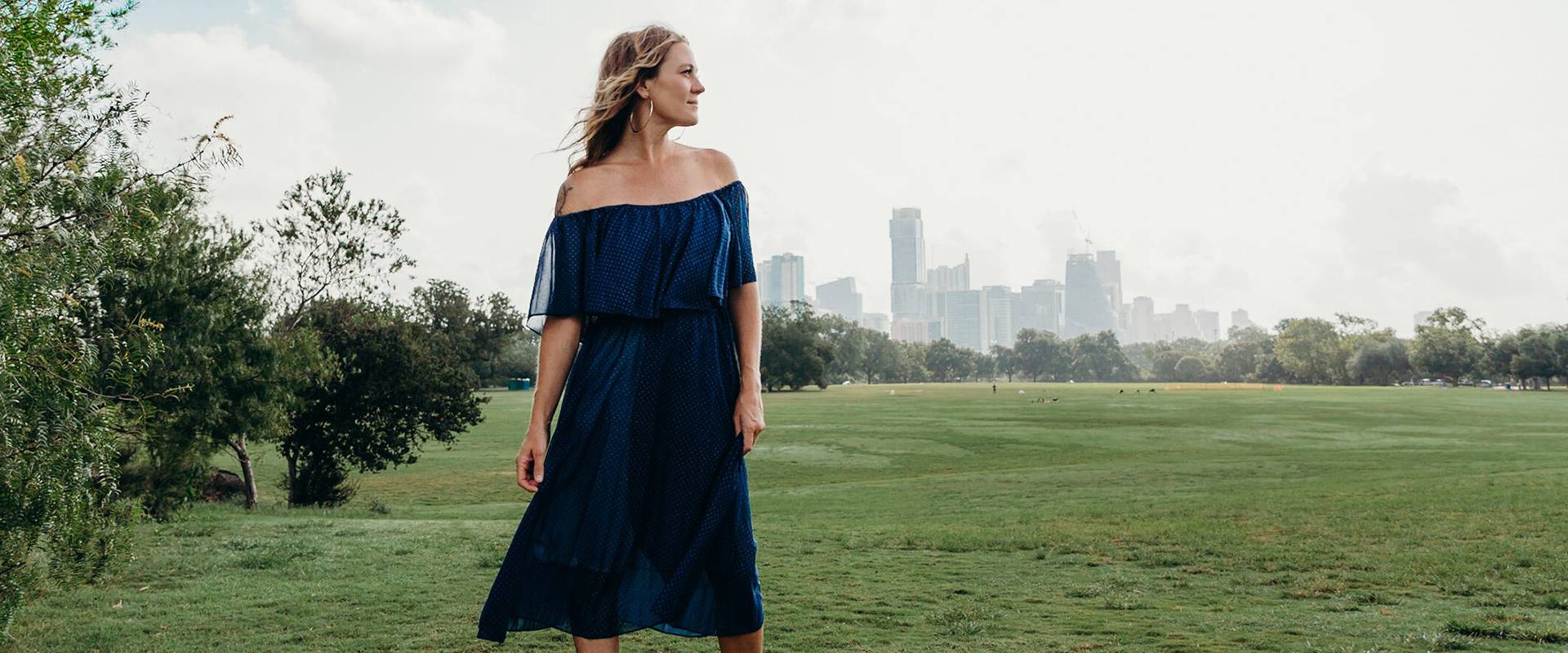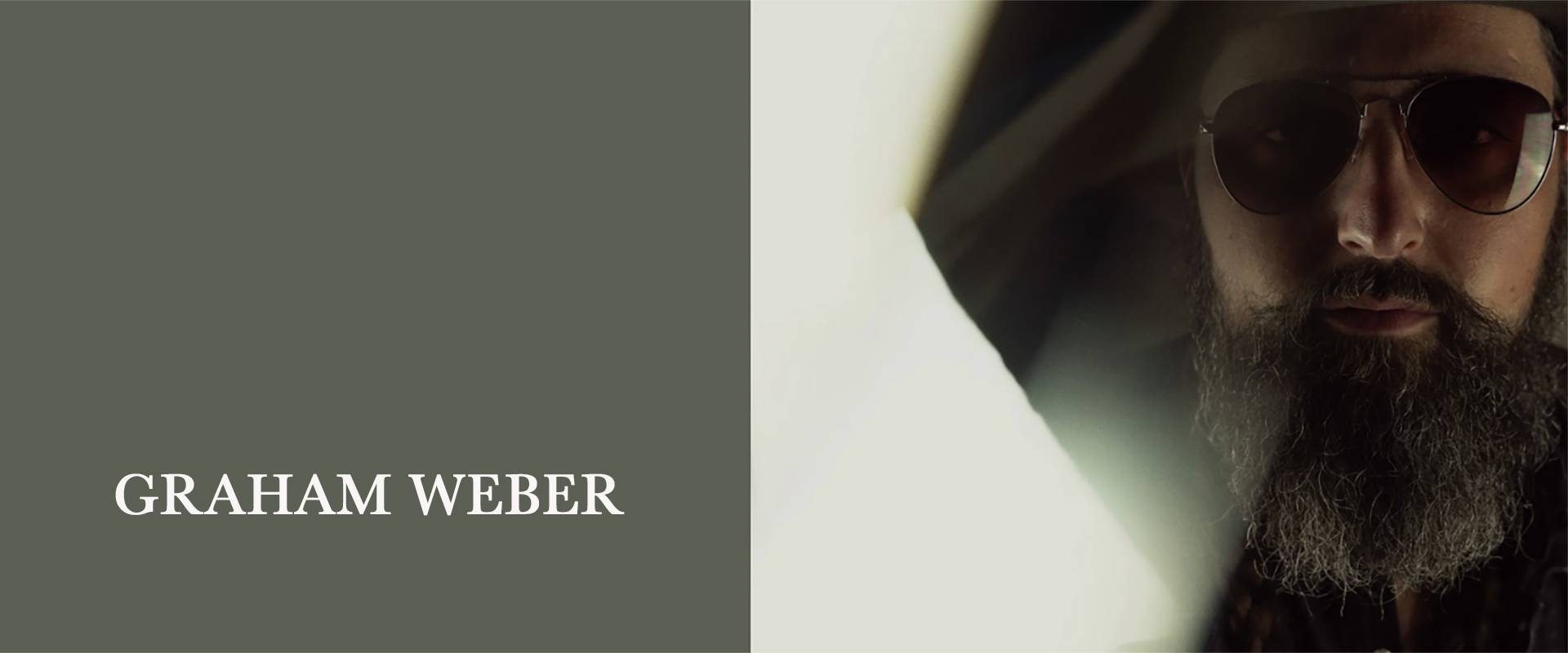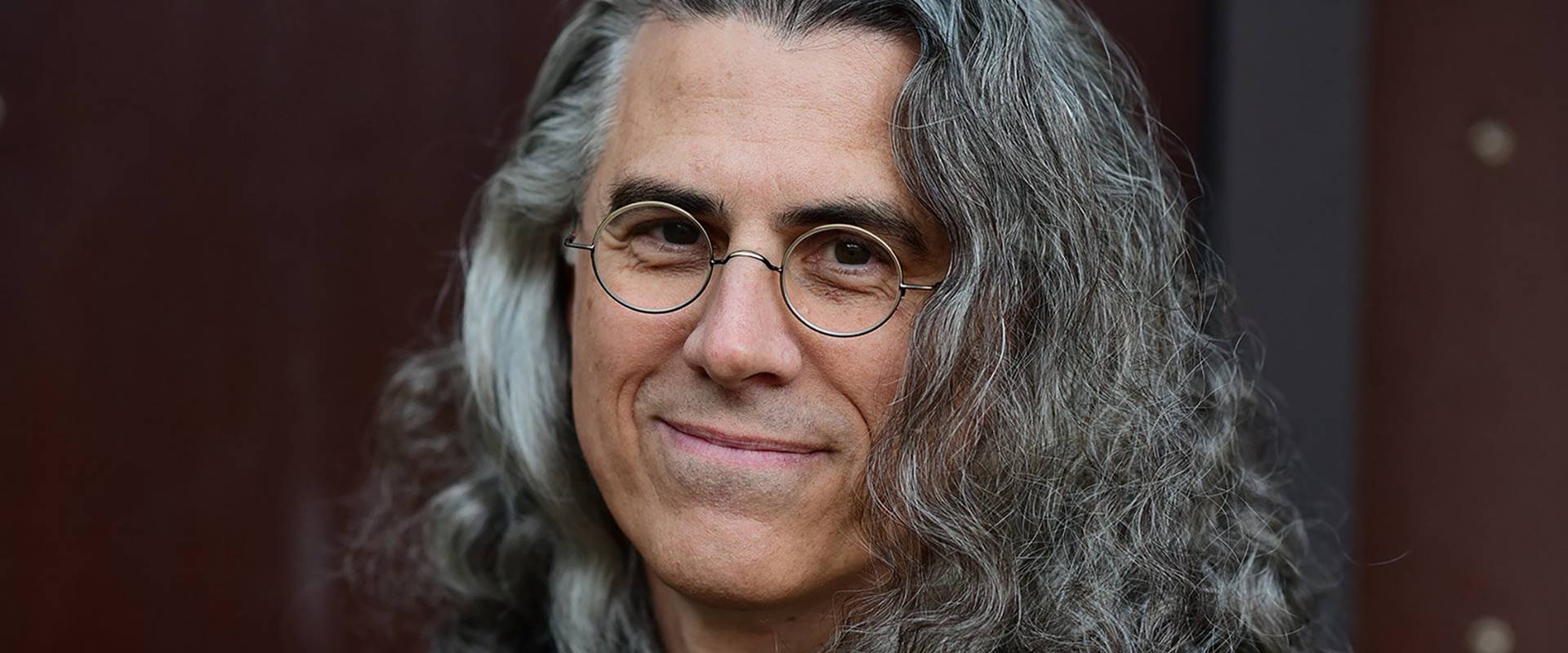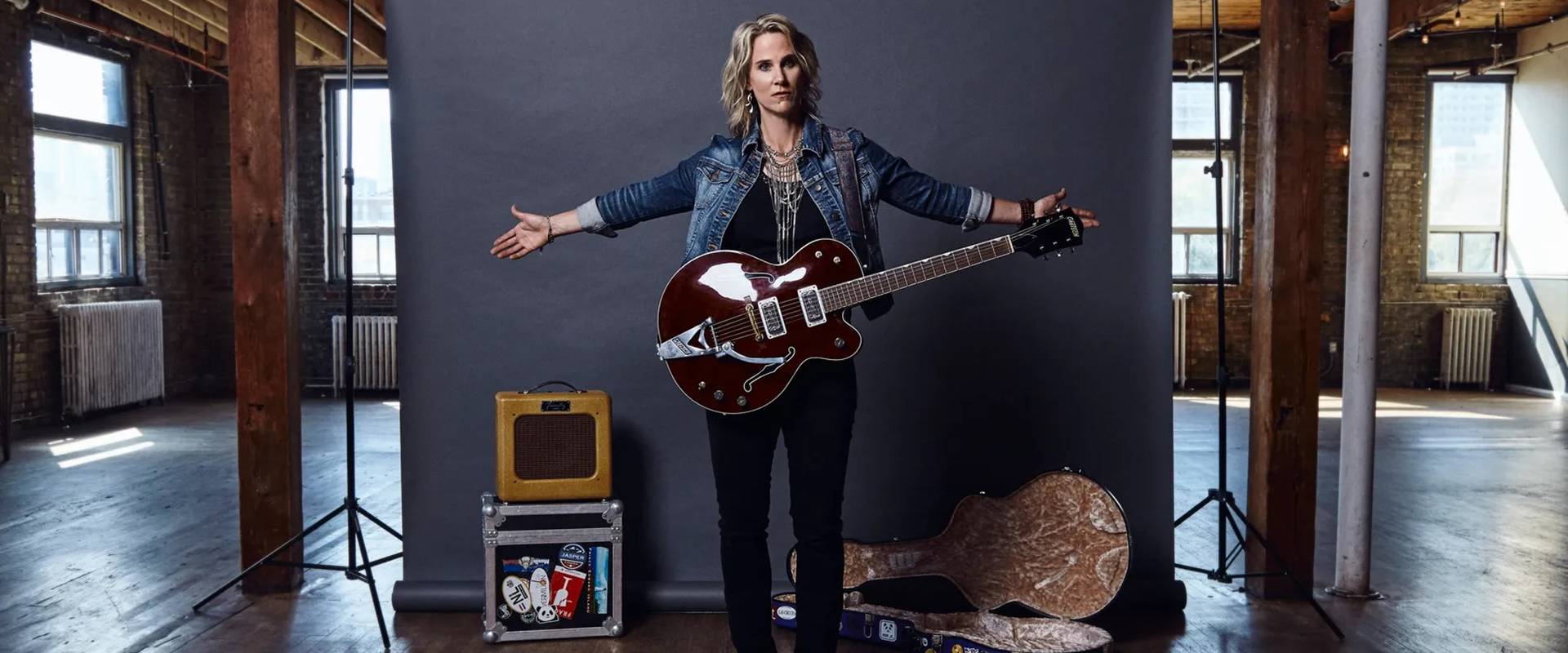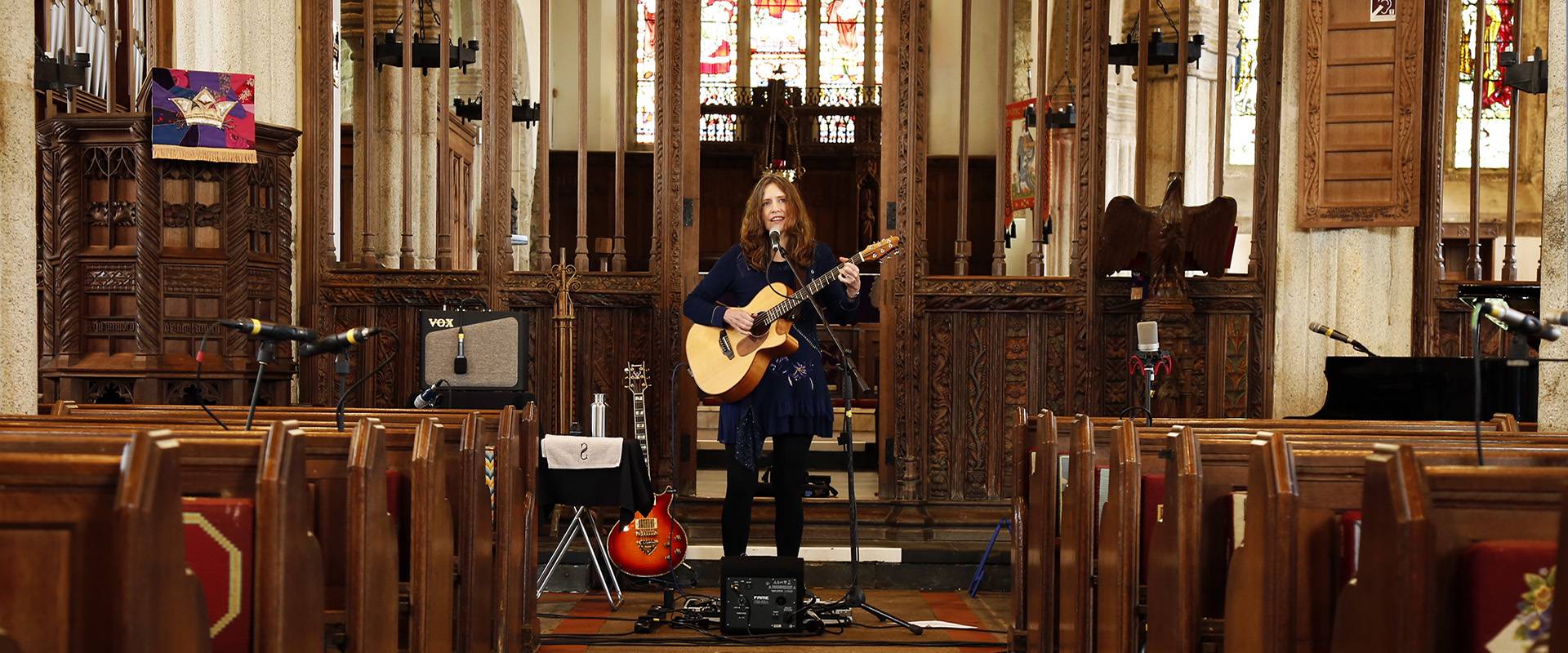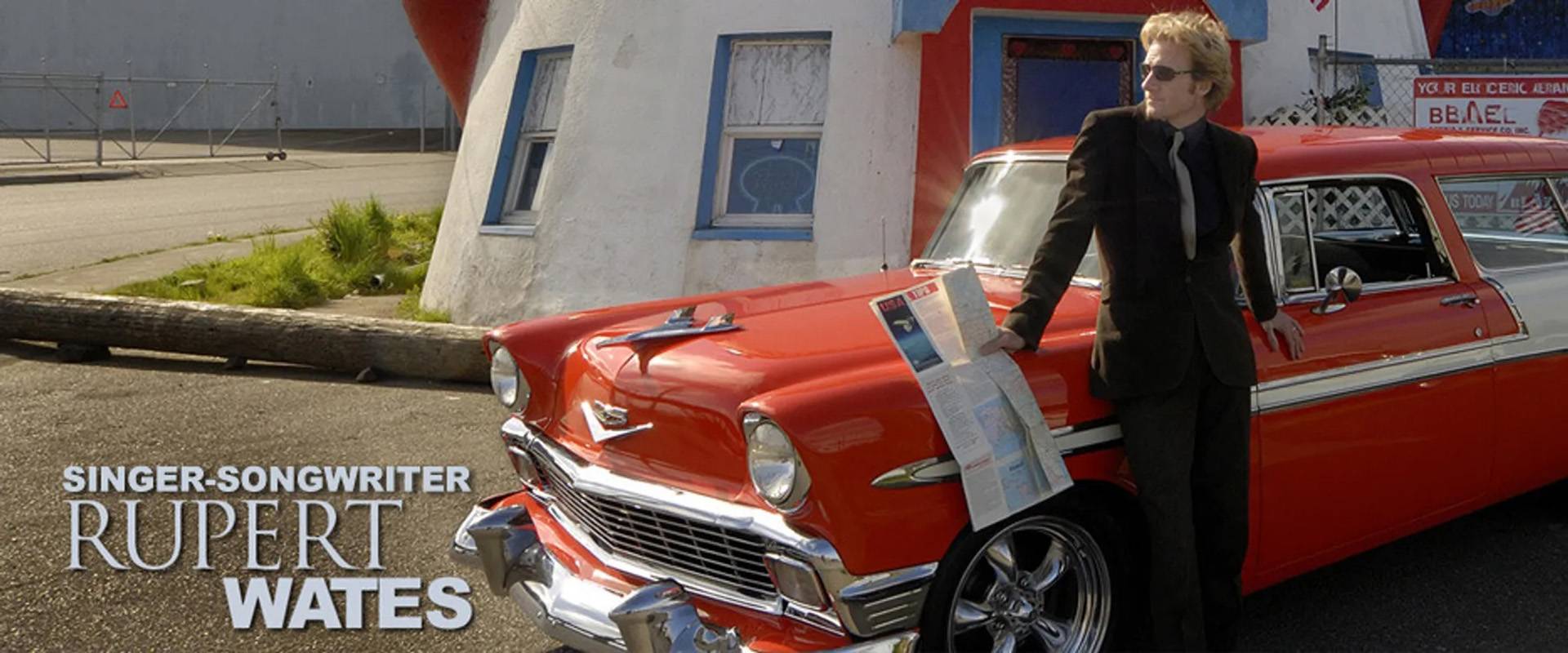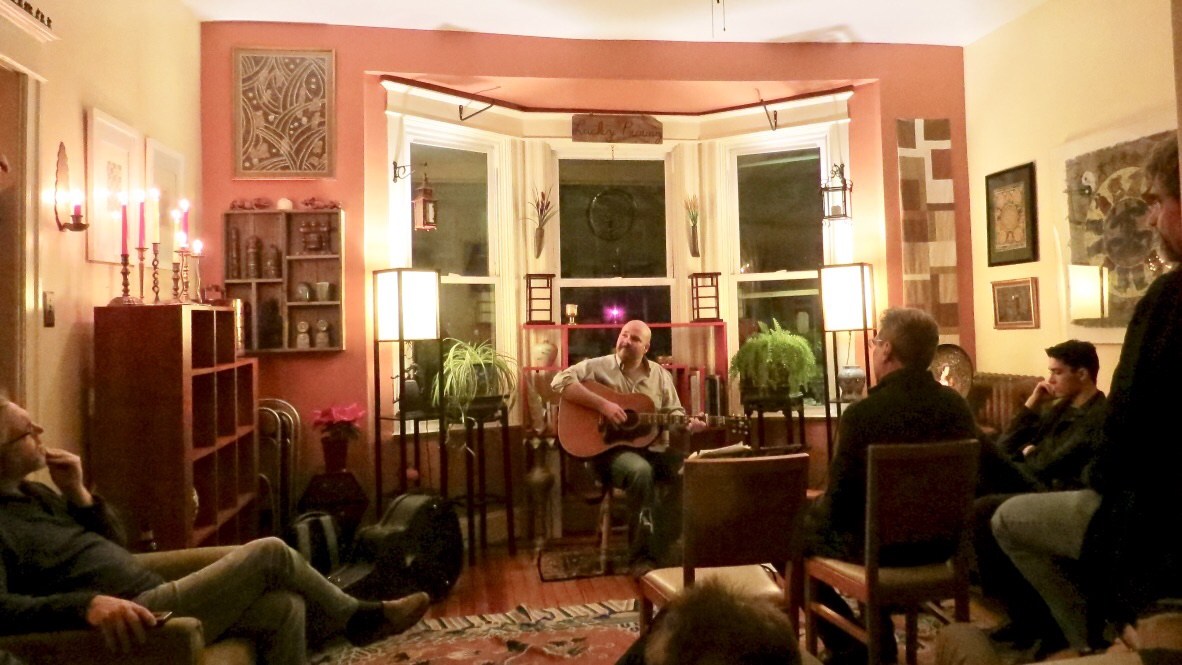TALES YOU WIN IN LUCKY PENNY’S LIVING ROOM: A Look At Americana Music’s Intimate Concert Trend
Mark Cline Bates is Lucky Penny’s latest living room troubadour. Hailing from Hurricane, West Virginia, a strong gust’s reach from DC, Mark prefers to embody the aftermath, and greets his assembling guests with a calm, and an appreciation, that belies both his youthful songwriter successes and the current countdown to his fifth album, King of the Crows. The album set to be released in April of this year was produced, no less, by THE Don Dixon of REM and James McMurtry fame.
Just past 30, Bates bears an “old soul”; his songs are artfully honed tributes to his West Virginia roots. Family farm values imbued him, somewhat paradoxically, with the grit and courage to be the singer/songwriter, the traveller and the seeker, his calling demands. he is a first time visitor to Paul Eckert’s intimate living room in what Eckert describes as “a crumbling late Qing Dynasty row house in NW Washington, DC.” And despite cold drizzly January darkness and government shutdown uncertainty, Mark Cline Bates will continue Lucky Penny’s house concert tradition of making Americana great again.
The popularity of Living Room, or House, concerts has grown exponentially over the last several years. Artists and hosts alike increasingly recognize the personal and economic value of connecting in an authentic way over a shared passion. House concerts that operate within the context of the venture’s original intent are about the primacy of the music, the intrinsic value of the artist — and the transcendent experience that music creates for the listener. “Listening rooms” like Lucky Penny embrace the meet and greet vibe often packaged and sold as an expensive concert add-on in more traditional venues.
Shared values and goals set the standard for house concert expectations. A host operating within the original house concert paradigm, for example, understands and demonstrates an unequivocal commitment to the musician as an artist, who has to navigate an uncertain and economically challenging landscape. Talent, drive, and vision are not always compensated in a viable way through more traditional venues, and almost all of the house concert hosts I spoke with agree that a house concert is a labor of love, the main goal of which is ensuring the financial sustainability of the musician. Simply stated, hosts embrace art for art’s sake and not for their personal financial gain.
“It’s very simple: if every single dollar taken in does not go to the performer, it may be a gig, but it is not a ‘house concert,’ veteran guitarist and longtime record producer (e.g of the Bottle Rockets’ recent Bit Logic) Eric “Roscoe” Ambel says emphatically. “Any show where anyone takes any money off the top before paying the performer is a show being run by a promoter and not a house concert host.”
Bill Bloomer, a house concert regular and seasoned performer–whose latest album, Jubilee, was recognized on this publication’s Reader’s Vote Best of 2018 list—echoes Ambel’s assertion. “The one red flag I see more and more is most of the money goes to the performer. That looks like a grey area that may take more online negotiating. When I see that, I look for other opportunities instead.”
Opportunities, no doubt, like playing as part of Paul Eckert’s Lucky Penny House Concert Series, which Bloomer, strumming his vintage Gibson guitar, did this past December.
As a House concert host, Eckert is the “real deal.” A longtime Americana music aficionado, he decided to give concert hosting a go, he said, “after seeing a widely admired artist draw only 4-5 people (4 of whom were my group) at a venue. I felt that I could do better by this artist than that poor turnout.” It’s a support to the musicians when the host can attract audience and new fans for them, relieving the artist of the responsibility for draw.
Eckert’s decision to try it was made in May 2017, and he has been refining his process ever since. Lucky Penny shows take place about once a month and the artists who have played there include recognized Americana talent, such as Adam Caroll, Darden Smith, Tommy Womack, Bill Bloomer and Chuck Hawthorne.
Through email or Facebook, Eckert typically initiates contact with the musician or the musician’s agent, and–once the booking is certain—he works directly with the artist to promote the show, often forming lasting friendships in the process. “Discovering the “human side” of these musicians is its own reward in nearly every case. These guys and gals are usually switched on, funny and have a lot to say.”
Activists, of sorts, for live music, house concert hosts take their responsibility to the musicians quite seriously. “It is Lucky Penny policy to feed and house the artists, and usually they come for dinner and chill before the show. “ Eckert explains. “About eight of ten have taken me up on staying in my guest bedroom. I send them off with a hearty breakfast if their schedule allows. I always check dietary preferences (vegan? gluten issues? etc.) and offer my washer and dryer to musicians on tour.”
And Eckert’s approach to hosting is not uncommon. Kiki Schueler, of Madison, Wisconsin, is known as something of a House concert legend. Kiki’s House of Righteous Music, as her series is known, has hosted 273 shows since its start in 2005. Last year alone she welcomed 36 artists into her home.
“Sound check and dinner are usually two hours before show time. I usually cook for the band, and most times they stay with me. I hate to see touring bands spend money they don’t have to! “
House concert hosts’ generosity with both their time and resources is not lost on the artist. Jim White, a versatile musician and performer whose impressive resume includes touring and working with David Byrne of The Talking Heads, speaks for a majority of living room regulars when he expresses his gratitude for those who have opened up their homes to him. “I’m eternally grateful … life is so fraught with difficulty on the road, particularly since royalty revenue has all but vanished, so the folks who host house concerts are heroes to musicians like myself.”
The good news is that all live music fans have the opportunity to stand on the front lines of support for artists they know, and artists they could know, by proactively seeking out and attending house concerts. Offering the suggested donation, typically $15 to $20, spreading the word or bringing friends, and making sure to purchase merch — which can be signed on the spot — are three simple steps to be part of a grass roots movement which supports musicians and grants VIP concert access to all.
Chuck Hawthorne, whose lovely and haunting album, Silver Line, played on repeat in my head for weeks after seeing him perform in the living room of Lucky Penny, calls the unifying force that settles over house concert folks “a deep appreciation for song.” And that deep appreciation is evident in the Lucky Penny living room tonight.
Mark Cline Bates sings of how identity and birth bind him to the things he wants to leave, but can’t: “But I’m bound to it baby like the law of the land/ I don’t know a lot of things but I know what I am.”
The 60-year-old Lucky Penny sign, salvaged from the hunting/ high school hang out cabin that is its namesake, is centered on the wall above where Bates performs.
“The Lucky Penny cabin was burned down in 1999, breaking my father’s heart,” Paul Eckert told me. “I scattered some of his ashes at the Lucky Penny site in November 2015, five months after his death.”
Bates plays a final chord and finds the pretty face of his wife, Jill. “I am going to sing the song Adam Carroll was playing when I asked you to marry me.”
Like many house concert spaces, the Lucky Penny living room is filled with stories, and these stories, just by listening, can be heard.

